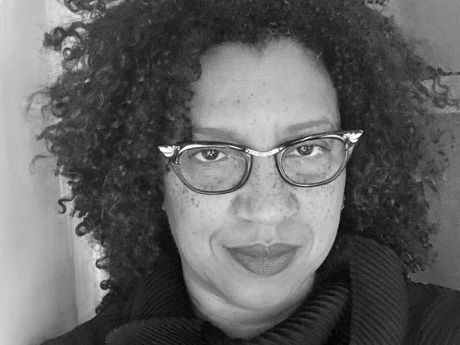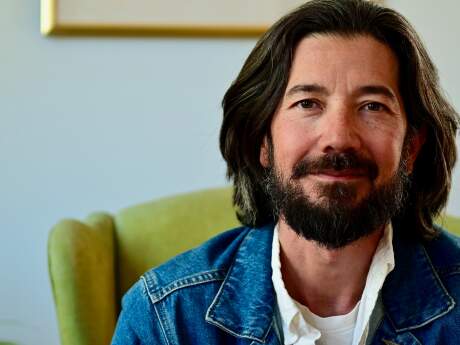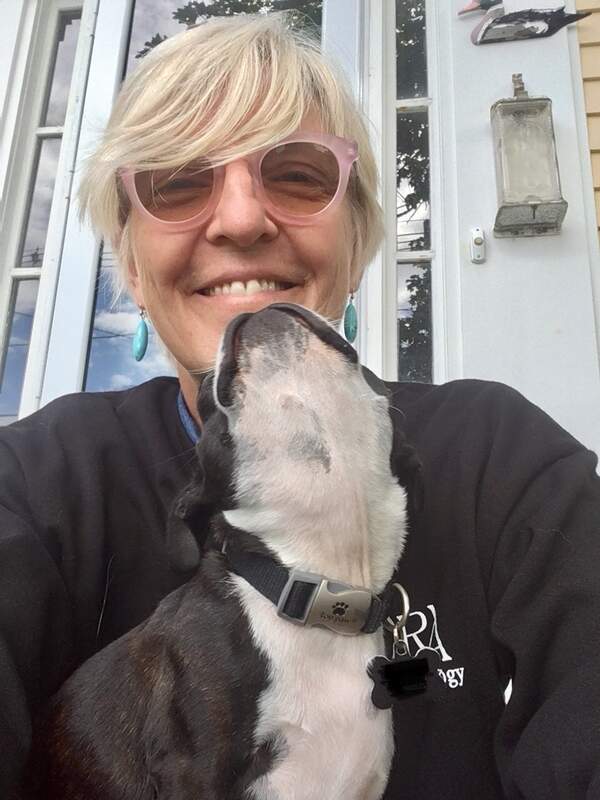Stopping By
Stopping by with Robin Coste Lewis

During this extraordinary moment—of both pause and activism—we asked writers, musicians, curators, and innovators to reflect on the power and memory of language, shared spaces, and this moment in time. Subscribe to the PSA newsletter for more Stopping By responses and to keep updated with the PSA.
Robin Coste Lewis is the poet laureate of Los Angeles and writer-in-residence at the University of Southern California. Her poetry debut, Voyage of the Sable Venus (Knopf, 2015) was honored with the 2015 National Book Award for Poetry—the first poetry debut to do so since 1975, and the first debut to win in poetry by an African American. Lewis is a Cave Canem fellow, a fellow of the Los Angeles Institute for the Humanities, and a Ford Foundation Art of Change fellow. She received her MFA in poetry from NYU, an MTS in Sanskrit and comparative religious literature from Harvard University's Divinity School, and a PhD in poetry and visual studies from the University of Southern California. A finalist for the Rita Dove Poetry Award, the Los Angeles Times Book Prize, the Hurston/Wright Award, as well as the International War Poetry Prize, Lewis has published her work widely in various journals and anthologies, including The New Yorker, The Paris Review, and The New York Times, among others. She has taught at Wheaton College, Hunter College, Hampshire College, and the NYU Low-Residency MFA in Paris. Currently, she is a Writer-in-Residence at the University of Southern California. Born in Compton, California, her family is from New Orleans.
What is the last thing that moved you?
The hummingbirds and several new varieties of butterflies that now arrive in my backyard ever since I planted a vegetable and flower garden. It doesn’t matter what any of us think, feel or see if we can’t actually breathe the air. So, the arrival of pollinators and lizards and birds—all that—gives me hope that there will be a planet in our future, even if we aren’t here. It’s easy to look past the air, but not when we can’t breathe.
What is a book that changed your life?
Tar Baby by Toni Morrison. I was a teenager. It was the early 80s. Literature, then—which is to say, English—had been used as a tool of profound psychological abuse and subordination (which is why so many people despise reading). Our teachers used English literature as a justification for white supremacy and our so-called inferiority. Implicit in American literary pedagogy was the idea that there weren’t any other significant literary traditions on the planet, besides the British and American ones, pre-Cold War (with a little French translated for good measure. And Homer, of course, like a hammer). At the time that I went to school, kindergarten through twelfth grade, one could have easily matriculated for over a decade of American education and not be made aware that there were writers of other languages, literary traditions millennia-old, alive in all their dynamism, all over the globe. And so, imagine, in this context, stumbling across Morrison’s Tar Baby—accidentally—when I was in eleventh grade? At that time, due to the racism of the American curriculum, I didn’t even know that Black women novelists existed. I read the book in one sitting—utterly destroyed by her genius, her unapologetic Black aesthetic—the fact that her English was so unconstrained. I was a new person when I turned that last page. Besides being a work of sublime genius, it showed me how to turn English, a tool of colonial indoctrination, into prey. I knew, then, that, with practice, I could one day make English do whatever I wanted it to do.
What is a book you think everyone should read?
I don’t think there’s any one book everyone should read. It’s that kind of thinking that created the canon—cannons, too! No book is that exceptional, no work of art. We should read them all. In every language. Twice.
But I think the question is more about reading advice. Here’s a practice I followed for decades: Close your eyes, spin the globe, point. Whatever country your finger lands on, only read the literature from that country, for the entire year. And begin, exclusively, with the work written by women.
What is your first memory of poetry?
My father’s voice, playing with rhyme, delighted with meter, unironically. Just conversation, the lilt and play of human evolution in his parts of speech; the simultaneous multisensory ecstasy of all that: his smell, the sunshine, other sounds throughout our home; the voices of my brothers and sister: black idiomatic ecstasy; and my mother somewhere, smelling pretty, cursing exquisitely—long before we all became self-conscious, long before the aesthetic death-nail of assimilation. English was the tightrope upon which the beauty of our existence took place. A toy. A game. We were winning.
The pandemic has emptied many public spaces (libraries, concert halls, museums, parks, transit systems, etc.). What space—and community—do you miss the most?
I don’t miss specific types of public spaces. I just miss the intimacy of anonymity—walking along next to a stranger admiring their nape. Or: overhearing a conversation, a parent speaking to a child. But what I miss most is sanity. And democracy. And dignity.
Public space is rife with words—signs, logos, advertisements. If you were to choose one poem or text to inscribe in a public place right now, what would that be? And where would you place it?
“All the unhappiness of men arises from one simple fact: that they cannot sit quietly within their own chambers.” ––Pascal
In the sky, by a skywriter.
Have you thought differently about the role and power of language and art in the wake of murder of George Floyd, Breonna Taylor, and the wide-spread protests?
No. This is an epoch. We’ve been fighting for centuries. Just because non-Black allies have joined us—finally—doesn’t mean anything more remarkable is taking place except for the fact that it took the rest of the world an awful long time (several centuries!) to stop ignoring our executions.
Several men and women of color are being murdered during the time it is taking me to type this sentence. Within our borders, outside our borders, on our borders.
The problem with questions like this is they aren’t urgent enough. History is just staring at us. The documents are here. The witnesses are here. We are here.
That said, I am intensely proud to see all of the dynamism and courage of the younger generations—the profound courage with which they are rising to their own history. My skin just beams.
Have you created something during the lockdown, or are you working on anything now?
For the last few years, as poet laureate, I have been working on Poetic Truths and Reconciliation: Los Angeles, an experiment in historical redress wherein we will use poetry and international models of reconciliation to engage and in some ways, hopefully, correct the atrocities and ongoing struggles enacted upon numerous communities within the Southern Californian basin.


